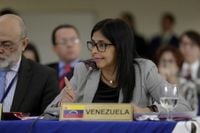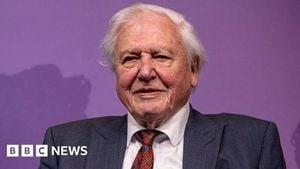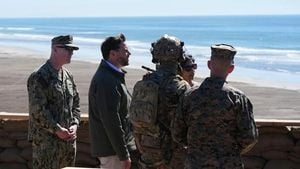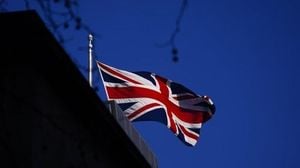In a week marked by intrigue, denials, and escalating military maneuvers, Venezuela’s political crisis has entered a new and volatile phase. Reports surfaced that top Venezuelan officials had floated a plan for President Nicolás Maduro to step down in three years, handing power to Vice President Delcy Rodríguez in a bid to ease mounting U.S. pressure. The proposal, which was quickly dismissed by the White House, has since been publicly ridiculed by both Maduro and Rodríguez, who insist their government remains united and defiant against what they call foreign psychological warfare.
According to The Associated Press, the plan presented by Venezuelan officials would see Maduro step aside before the end of his current six-year term, set to conclude in January 2031. Under the proposal, Rodríguez would serve out the remainder of the term but would not seek reelection. The White House, however, rejected the idea outright, citing doubts about Maduro’s legitimacy and ongoing accusations that he oversees a narco-terrorist state. U.S. officials concluded that the proposal aimed to preserve the regime’s criminal structure under a new guise, referring to it as "Cartel Lite." As one source told the Miami Herald, "The 'Cartel Lite' was not a viable option."
Delcy Rodríguez, for her part, wasted no time in denouncing the reports. On October 16, 2025, she wrote on her Telegram channel, "FAKE!! Another outlet joins the filth of psychological warfare against the Venezuelan people. They have no ethics or morals and exclusively favor lies and carrion." She continued, "The Bolivarian Revolution has a high political and military command that is united and committed to the will of the people." Rodríguez’s brother, Jorge Rodríguez, who leads Venezuela’s National Assembly, was also named in the reports as a key figure in the supposed transition plan.
Maduro himself joined the chorus of denials during a televised event, dismissing the rumors as an attempt to divide his government. "I have bad news for the schemers, the imperialists, and all their media outlets, websites, and agencies," Maduro said. "Today, the political-military high command of the revolution is more united and determined than ever to defend our homeland, imbeciles." He also mocked U.S. President Donald Trump’s recent confirmation that the CIA had been authorized to operate in Venezuela, quipping, "Can anyone believe the CIA hasn’t been operating in Venezuela for the past 60 years?"
The Miami Herald first reported that intermediaries for the Rodríguez siblings had approached the Trump administration with two separate proposals earlier in 2025, both with Maduro’s knowledge. These offers, presented through mediators in Qatar, suggested a “Madurismo without Maduro” transition, keeping much of the current power structure intact. One version of the plan would have seen Delcy Rodríguez as a continuity figure, with retired general Miguel Rodríguez Torres, currently in exile, leading a transitional government. The rationale, according to the Herald, was that neither Rodríguez sibling had been indicted for drug trafficking in the U.S., unlike Maduro and several of his top aides.
Yet, the U.S. administration was unconvinced. Former regime insiders have linked both Rodríguez siblings to logistical and money laundering operations tied to the infamous Cartel of the Suns, a network that U.S. prosecutors allege is run by high-ranking Venezuelan government and military officials. The Trump administration, wary of any negotiation involving regime officials sanctioned by the U.S. or tied to organized crime, dismissed the offers. As reported by the Latin Times, the proposals were seen as attempts to “launder” the regime’s image while preserving its criminal apparatus.
The diplomatic drama unfolded against a backdrop of intensifying U.S. military activity in the Caribbean. Since early September 2025, the U.S. military has carried out a series of strikes on alleged drug smuggling vessels in the region, including at least four boats that originated from Venezuela. On October 14, President Trump announced that U.S. forces had destroyed a vessel off Venezuela’s coast, which he said was tied to a “Designated Terrorist Organization” involved in drug trafficking. It was the sixth such strike in two months, bringing the death toll to 27. The deployment now includes more than 4,500 U.S. Marines and Navy personnel, supported by a cruiser, destroyers, a Los Angeles-class attack submarine, and F-35 fighters based in Puerto Rico—giving Washington overwhelming air and sea superiority over Venezuela’s aging fleet, as detailed by the Miami Herald.
Trump’s strategy has grown increasingly aggressive. On October 15, he confirmed to reporters that he had authorized covert CIA operations in Venezuela and signaled that further strikes in the region were under consideration. While the president declined to specify whether the CIA has authority to take action directly against Maduro, the acknowledgment itself marked a rare public admission of U.S. covert activity. Analysts, such as Brian Fonseca of Florida International University, described the move as a psychological operation designed to sow anxiety among Maduro’s inner circle. "This is about putting pressure on the Maduro regime and trying to create a fracture among the country's political and military elite, and see if you can then get that fracture into dislodging Maduro from power," Fonseca told AP.
U.S. officials have made no secret of their ultimate goal: removing Maduro from power. Trump’s pressure campaign is aimed at encouraging Venezuela’s military leaders to abandon the embattled president, leaving him increasingly isolated. Vanda Felbab-Brown, a senior fellow at the Brookings Institution, told AP, "It’s clearer and clearer by the day that the purpose of these actions in the Caribbean is to bring down the Maduro regime. The administration is trying to create enough pressure on the military to abandon Maduro."
The stakes are high for both sides. Maduro, who was sworn in for a third six-year term in January 2025 despite credible evidence he lost the 2024 election, faces mounting international isolation and domestic unrest. The U.S. Justice Department doubled its reward for information leading to Maduro’s arrest to $50 million in 2025, labeling him "one of the largest narco-traffickers in the world." Trump has also drawn attention to the Venezuelan gang Tren de Aragua, which he claims is a front for Maduro’s regime, with alleged members killed in the first U.S. strike last month.
Maduro, meanwhile, insists that his government and military remain steadfast. He claimed that 6.2 million Venezuelans are enlisted in the Bolivarian Militia, a civilian reserve force described as part of the country’s "comprehensive defense system." In his words, "nothing will deviate" his government from defending Venezuela’s rights and its Bolivarian legacy.
As the U.S. ramps up its military and covert efforts, and Venezuela’s leadership doubles down on unity and resistance, the prospect of a negotiated transition appears more remote than ever. Both sides are playing a high-stakes game, with psychological operations, military deployments, and public denials shaping a crisis that shows no sign of resolution. For ordinary Venezuelans, the political theater in Caracas and Washington translates into continued uncertainty—and a future that hangs in the balance as global powers vie for control over the nation’s fate.




